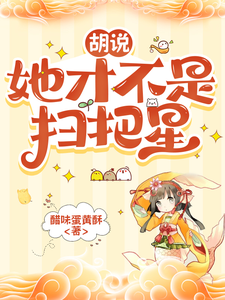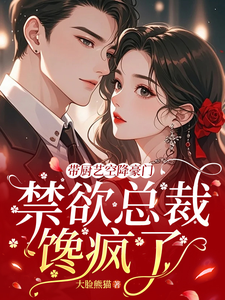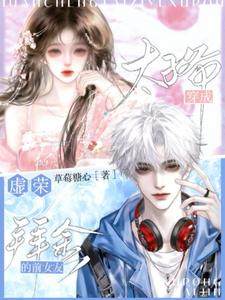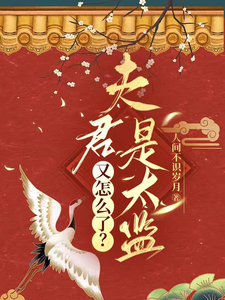After eating those shepherd's purse spring rolls, Xie Qi felt comfortably full and slept soundly through the night, undisturbed by dreams.
The next morning, he was awakened by the increasingly heavy rain outside. Propping open the window, he saw the downpour—large raindrops pattering endlessly from the eaves. His two young attendants, Yan Shu and Qiu Hao, along with other servants, sat beneath the corridor, stretching their hands out to catch the rain, playfully splashing each other.
Through the half-open lattice window carved with farming and scholarly motifs, Xie Qi quietly watched the laughing servants and the rain.
By afternoon, the rain still hadn’t stopped. Everything was damp, and the wind had turned chilly. Xie Qi had spent half the day reading, practicing dozens of pages of calligraphy, and completing the essays and commentaries assigned by his tutors. Gazing at the ceaseless rain, he found himself unusually idle.
Donning a white silk robe, he strolled out to the corridor and looked around.
In the distance, his mother had ordered the servants to drape rain cloths around the reed awning. A large pot of ginger-infused honey tea simmered for the monks chanting sutras beneath it. The sound of scripture mingled with the rain, and the sandalwood incense, now touched by the mundane, took on an ethereal, almost divine quality.
Closer by, the rough-handed servants tasked with sweeping his courtyard had donned straw raincoats and wooden clogs. Armed with long bamboo hooks, they diligently cleared the clogged drainage channels along the corridor, now overflowing with fallen leaves.
Xie Qi tightened his robe and suddenly thought of Madam Shen.
Yesterday, as she followed the gatekeeper out, he had stood silently in the stone pavilion, watching her leave. Once beyond the Xie family’s gates, her slender shoulders would bear the weight of a carrying pole, her two younger siblings trailing behind as they trudged all the way back to Jinliang Bridge on foot.
Today, with the rain turning the roads muddy, their journey would be even harder.
The Xie family had produced generations of great scholars, a lineage steeped in literary tradition, even retaining the refined tastes of the Wei-Jin era—fond of philosophical discourse and Buddhist rites. By the age of ten, Xie Qi had already traveled with his scholarly uncles, journeying across the land to study its wisdom and understand its truths. Though young, he had witnessed much of life’s hardships, never developing the arrogance of those noble-born youths who couldn’t tell one grain from another. He understood better than most the toil of those who labored for their daily bread.
True, his childhood had been plagued by misfortune, turning ordinary travels into life-or-death adventures, each trip an unexpected trial for his uncles. Yet Xie Qi had inherited his mother Lady Xi’s optimism. Most mothers, knowing their child faced such dangers, would have forbidden further travels.
But Lady Xi, stitching clothes by candlelight, had simply smiled and said, “Don’t fear, Ninth Brother. Though you meet danger at every turn, haven’t you always escaped unharmed? Such extraordinary perils are yours alone—others will never know them. Besides, what life is ever perfect? Regrets outnumber blessings; that’s the way of the world. Everyone hopes for smooth sailing, but if hardship comes, must we stop living? Never let it dishearten you. Your mother believes fortune and misfortune walk hand in hand. Do good deeds with a clear conscience, and one day, luck will favor you.”
Remembering this, Xie Qi smiled.
Yes—do good, leave the rest to fate. Act without regret, regardless of the outcome.
He called Yan Shu over, the boy dripping from his play in the rain, and instructed him carefully: “Go find Zhou Da, the stablemaster. Ignore Third Aunt’s complaints about lacking hands—have him set aside one of my carriages and arrange for Madam Shen to be fetched. Though we’ve paid her to prepare vegetarian pastries, we shouldn’t make her carry heavy loads through the rain. Grandfather’s rites are meant to gather blessings and share peace—how can we let them bring hardship to others?”
Yan Shu nodded eagerly, snatched an umbrella, and dashed off. Halfway, he doubled back to his quarters for his own raincoat, borrowed a larger one from Qiu Hao, and delivered both to Zhou Da at the stables, adding a flurry of detailed instructions.
Xie Qi returned indoors to play a solitary game of chess. Soon, Yan Shu reappeared, shaking off his umbrella by the door and munching on roasted beans pilfered from Zhou Da. “Ninth Brother, all’s arranged.”
Xie Qi nodded, putting the matter aside.
Then his father summoned him to greet guests in the main hall. With a resigned sigh, he rose to go.
His father was a good man in all ways—save for his vanity.
Yan Shu fetched a large umbrella, muttering as they stepped out, “Bet those guests flattered him senseless again.”
Xie Qi shot him a look, and Yan Shu grinned, miming a zipped mouth.
The silence lasted only until they stepped into the rain. With the downpour drumming loudly on the umbrella, Yan Shu couldn’t resist sharing gossip: “Ninth Brother, heard what happened before we returned from Chenzhou? Guests asked to meet the ‘prodigy’ of the household, and Father Xie had no choice but to fetch Third Brother. But Third Brother had spent the night carousing in the pleasure quarters! His servants hauled him up in a daze—he barely managed a bow before vomiting all over the guest…”
Xie Qi’s lips twitched, imagining his father’s horrified face, whiskers bristling like a startled cat.
“Father Xie—Father Xie leaped onto the table!” Yan Shu burst out laughing. That day, Father Xie had worn a newly tailored cloud-patterned robe, its elegant cranes embroidered over weeks by two seamstresses. At the sight of his son’s disgrace, his first instinct wasn’t to aid the guest—but to protect his precious garment by scrambling onto the furniture.
Xie Qi shook his head, torn between amusement and exasperation. “No wonder Third Brother was confined to his courtyard when we returned.”
“As if that could stop him! He scaled the wall the next day.” Yan Shu shrugged, nostalgically crunching more beans. “Else how would he have bought Madam Shen’s cakes for you?”
As they neared the outer courtyard, Xie Qi warned, “No more eating once we’re inside. Don’t let the other branch see and tattle to Mother.”
Yan Shu hastily stuffed the remaining beans into his mouth.
Though Xie Qi’s grandfather had passed, his grandmother still lived. By Song dynasty custom, families didn’t divide their households while elders survived, so the three Xie branches shared one estate. All younger generations bore the “Shi” character in their names—thus, though called “Ninth Brother,” Xie Qi had only one full sibling: the unruly Third Brother, Xie Tiao.
In such a large family, minor frictions were inevitable.
The two older cousins from the other branches of the family had already grown up, and some had even left to serve as officials in other regions—though they were only minor positions, barely worth mentioning. Still, they were officials nonetheless, and rumors outside the family suggested they were far more accomplished than the two sons of the main branch. This was why the aunt from the third branch was always scheming to seize control of household management from Mother, and why Father was so eager to build connections in official circles, hoping Xie Qi would excel in the imperial examinations and bring both fame and fortune to the family.
It was all to restore the main branch’s dignity.
"It’s been two days since I last saw Elder Brother," Xie Qi mused. Xie Tiao had mentioned going to some place called Pearl Curtain Alley—likely spending the night in some courtesan’s quarters again. He sighed softly. For the past two years, Xie Tiao had been drowning himself in wine, drinking until he passed out, waking only to drink again, as if determined to suffocate in a vat of liquor. Sometimes he wouldn’t return home for days.
Mother paid him no mind, her fingers flicking over the abacus as she muttered without looking up, "Let him drink. If he drinks himself to death, so be it."
Xie Qi sighed again. If his brother continued this reckless behavior, he’d surely face Father’s wrath upon his return.
Turning down a long corridor, he reached the front hall, where the rhythmic cadence of poetry recitations could already be heard. Xie Qi paused, exhaling yet another silent sigh, before steadying himself and stepping inside—destined to play the role of Father’s prized ornament for guests.
Outside, the rain grew heavier, the droplets from the eaves forming a continuous curtain. The Xie household was not the only one submerged in the downpour; the entire capital of Bianjing had fallen into a quiet lull under the deluge. Vendors hastily packed up their stalls, the Bian River beneath the Golden Beam Bridge swelled, and the narrow alleys of Willow East Lane had turned into muddy quagmires, puddles pooling everywhere.
Early that morning, Shen Miao had startled awake at the sound of rain. She threw off the covers and rushed to the kitchen, only to find the oilcloth missing. Panicked, she hurried into the courtyard—and there was Shen Ji, already awake, standing under the leaking eaves and reciting his lessons in a hushed voice.
Her gaze shifted to the wall, where the half-dried earthen kiln had been meticulously covered with oilcloth, weighed down by broken tiles to keep the wind from tearing it away.
Even the three chicks had been brought inside, sheltered under an old bamboo cage in a dry corner, now huddled together, chirping softly as they preened their downy feathers.
Shen Miao leaned against the doorframe, exhaling in relief.
Shen Ji turned at the sound of footsteps and smiled when he saw her—still in her sleeping robes, her hair loose and unbound. "Elder Sister, you should go put on some proper clothes. It’s much colder today with the rain."
"When did you wake up? I didn’t hear a thing."
"Before dawn."
Only then did Shen Miao realize it was already mid-morning. The gloom of the storm had tricked her, and Aunt Li’s rooster hadn’t crowed, letting her oversleep. But with the rain this heavy, the morning market was out of the question, and even lighting a fire for charcoal would be difficult. Might as well take the day off.
Relaxed now, she took her time washing up and dressing before yawning her way into the kitchen to prepare breakfast. Yesterday, that young master Xie had insisted on sending her home with an abundance of food—a lamb leg, two sacks of fine flour, a basket of eggs, and an assortment of vegetables and fruits. The head cook had even pressed a pre-kneaded, proofed dough into her hands, saying considerately, "It’s late. Rather than making you cook from scratch, take this—just drop it straight into the pot."
And when Shen Miao hesitated, he added, "This is also on the young master’s orders."
So last night, the three siblings had enjoyed a lavish, heartwarming meal. Shen Miao had sliced the lamb leg into paper-thin pieces, simmered the bones for broth, and shaved the dough directly into boiling water—creating a rich, fragrant bowl of lamb knife-shaved noodles that washed away the exhaustion of the day.
Sister Xiang and Shen Ji hadn’t eaten so much lamb since their parents passed away.
Even Shen Miao, in all her years as a cook, had never handled meat this fine.
A seasoned chef like her could tell the quality of the lamb just by its scent, and this leg was exceptional—the flesh a vibrant pink, as if the lamb had been lively and robust in life. The marbling was perfect, the fat evenly distributed, neither too thick nor too sparse.
Lamb like this was ideal—yellowed fat meant poor feed or spoilage, making the meat gamey. Too much fat made it greasy; too little made it tough. This was just right.
She rinsed the leg with the reverence of caressing a beauty’s slender limb, her mouth watering.
And the cut was from the front leg—less exercised, tender with minimal sinew, perfect for quick cooking. The hind leg, leaner and tougher, was better suited for stewing or braising.
So for the noodles, Shen Miao had thinly sliced the lamb, letting it cook briefly in the bone broth to preserve its delicate texture and natural flavor.
Her knife skills were impeccable—the slices so thin they were translucent, melting on the tongue with barely a chew.
The noodles, thick in the middle and tapered at the edges, were perfectly shaped like willow leaves. Boiled, they were springy and smooth, needing nothing more than scallions and ginger to shine. No heavy spices were necessary; there wasn’t a hint of gaminess.
And the broth—clear yet aromatic—filled the entire house with its savory richness.
Noodles, meat, and soup in harmony, the three siblings gathered around the small kitchen table, the stove’s glow warm and golden. Each bowl was piled high with lamb, and they ate with abandon, savoring every bite.
They drained the broth to the last drop, set down their bowls in unison, and let out satisfied sighs.
Shen Ji hadn’t been this full in ages. Glancing at Sister Xiang, he saw her forehead glistening with sweat, cheeks flushed. The little girl patted her rounded belly and giggled, "Elder Sister, look! I’ve turned into a little frog!"
Shen Miao burst out laughing.
The three of them lounged in their chairs for a long while, basking in the afterglow of the meal.
Eventually, Shen Ji got up to wash the dishes while Shen Miao took Sister Xiang for a stroll in the courtyard.
The three chicks, now tame, didn’t flee at their approach—instead, they trailed behind, thinking food might be in store. So as Shen Ji scrubbed pots in the kitchen, he glanced outside to see Elder Sister leading the way, Sister Xiang following, and the trio of chicks fluttering after them like a tiny, feathered procession.
The sudden death of his parents, followed by three years of living under someone else's roof, had turned Shen Ji into a guarded child who rarely smiled. But at this moment, without even realizing it himself, he was scrubbing bowls with such vigor that even his eyes sparkled with joy as he glanced at his elder sister and younger sibling.
From the day his elder sister returned, this place had truly begun to feel like home.
Now, when he occasionally dreamed, his nightmares no longer held the two pitch-black coffins of his parents or the swirling ashes of funeral paper in the mourning hall. Gone too were the endless predawn hours of labor in his uncle’s house, under a sky so dark it seemed bottomless.
His dreams had regained color and sound—the chirping of fledgling chicks, the delicate hues of wildflowers, Sister Xiang’s laughter, and the sight of his elder sister kneading dough at dawn, her back turned as she prepared their meals.
And then there were the flavors—the warmth of dough drop soup, the satisfaction of black rice and yam buns, the tenderness of spinach dumplings, the aroma of "Family Blessing" pancakes, the sweetness of flaky red bean buns, the savory richness of lamb knife-sliced noodles… From then on, hunger became a thing of the past.
It was… truly wonderful.
He lowered his head, hiding the warmth creeping into the corners of his eyes.
While Shen Miao and her family enjoyed their meal behind closed doors, the rich scent of meat spilled beyond their walls, filling the narrow alleyway. Aunt Gu, who had been clumsily attempting to recreate the cabbage and egg dumplings Shen Miao had gifted her the other day, was nearly bowled over by the sudden wave of aroma.
Wiping her hands on her apron, she stepped outside, inhaling deeply.
Uncle Gu, a seasoned brewer, was at home that day, sweating as he polished each wine vat in the courtyard. The unmistakable fragrance of high-quality lamb—untainted by overpowering spices—made him pause and lift his head, taking a long, appreciative sniff. "That’s incredible. No other seasonings masking it—just pure, good meat."
His nose, trained by years of brewing, could discern even through two courtyard walls that the secret to such a rich broth lay in the quality of the lamb itself.
His mouth watered, but when he craned his neck to peek at the kitchen counter, all he saw were his wife’s misshapen, lopsided vegetarian buns. Disappointed, he withdrew.
Aunt Li also opened her door, sniffing the air before her gaze settled on the Shen family’s newly crafted wooden gate.
The eldest Shen girl was certainly industrious. Just days ago, she had dragged in two soot-stained, wobbly-legged benches, propping them up with stones to create a makeshift platform by the door. In cracked clay pots and bowls, she’d planted wildflowers of unknown names. Beside them, she’d placed a wooden plank with red paper pasted on it, inscribed with two lines of text. Aunt Li had sent Li Gou'er to read it for her: "Spring blessings, summer peace; autumn solace, winter joy." Even the wall beside the gate bore a small square plank with the character "Shen" neatly carved.
At night, the soft glow of lanterns cast a warm, rustic light over the tiny petals and ink strokes, lending the scene a quaint charm.
What irked Aunt Li most, however, was how impeccably the characters were written—steady, bold, and refined. Shen Ji was the only one in the family who could write, but she hadn’t expected the boy expelled from private school to pen such elegant calligraphy—far superior to her own Li Gou'er’s, of whom she’d always been so proud.
Still, her boy wasn’t lacking, Aunt Li reassured herself with a firm nod.
As the lamb’s aroma grew even more tantalizing in the wind, she shot another glance at the Shen family’s gate, pursed her lips, and retreated inside, shutting the door behind her.
The Shens were cooking lamb stew? Such extravagance! Lamb wasn’t cheap… Aunt Li swallowed hard, then scoffed inwardly. Barely a few days into setting up a stall, and they were already splurging like this? Buying lamb, feasting lavishly—no matter how much they earned, it’d never be enough if they spent like this. That Shen girl was still young, ignorant of how hard money was to come by. She didn’t know how to manage a household.
Shen Miao remained oblivious to the alleyway’s gossip, and even if she had heard, it wouldn’t have stopped her from enjoying her meal.
Meat this good shouldn’t go to waste, and Shen Miao hated wasting food above all else.
Perhaps it was the lamb, but she felt warmth radiating in her belly all evening, her hands and feet toasty as she drifted into an unusually deep sleep.
That might have been why she overslept the next morning.
By noon, the drizzle had swelled into a downpour, raindrops as fat as beans hammering relentlessly. Shen Miao sat in the kitchen, shaping the red bean buns she was to deliver to the Xie family, watching the rain cascade like a curtain from the eaves. She sighed.
If the rain didn’t let up, she’d have to hire a covered donkey cart—otherwise, she’d be drenched by the time she arrived.
She didn’t mind for herself, but the unbaked bread couldn’t get wet.
She worked faster, clinging to the hope that the rain might stop soon.
But fate had other plans. By the time she’d finished all one hundred and fifty buns, not only had the rain persisted, but a fierce wind had kicked up, whipping the downpour sideways and sending trees swaying wildly. She grabbed an umbrella and stepped outside, only to find the streets transformed into a watery expanse, devoid of even a single soul. Where would she find a cart now?
What to do? Sighing, she turned back—just as she was about to close the gate, she spotted Gu Tusu in a straw raincoat, hauling wine vats into his house through the back door. Noticing her, he pushed up his bamboo hat, revealing a sun-darkened face with a sharp tan line. "Big Sister? What’s wrong?"
"Nothing, just checking the rain," Shen Miao replied with a smile.
She had considered asking the Gu family for their cart, but their wooden-wheeled barrow would be as useless as carrying a shoulder pole in this mud—likely to sink or topple. Even with a raincoat, pushing it would leave them soaked. She’d already resolved to brave the storm and rent a covered carriage from the coach station. It’d cost more, but at least they’d arrive dry and safe—especially with Shen Ji and Sister Xiang in tow.
Yet Gu Tusu saw right through her hesitation. Stepping forward, his earnest expression stark against his weather-beaten face, he said, "If you need help, just ask. You’ve been running your stall these days—why haven’t you come to me?"
Before Shen Miao could respond, the rhythmic clatter of hooves and the splash of wheels cut through the rain. A sleek, newly varnished carriage pulled by a chestnut horse emerged from the deluge, halting right before her.
Startled, she looked up.
A hexagonal lantern swayed in the storm, its silk-painted glass bearing the character "Xie."







